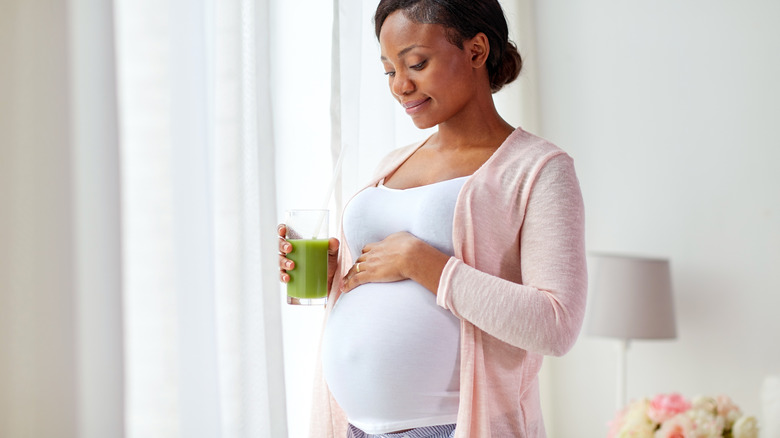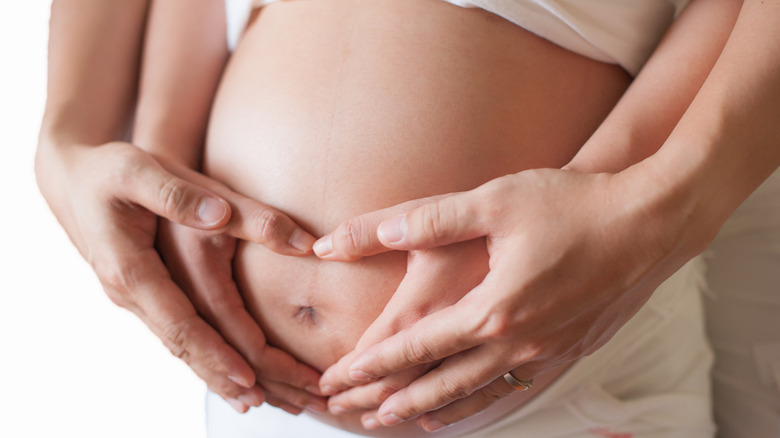What Does It Mean When You're Itchy While Pregnant?
While pregnancy can be joyous for many women, it can also come with annoying and uncomfortable symptoms. These symptoms include heartburn, leg cramps, hemorrhoids, and extreme fatigue, according to WebMD. But one symptom a pregnant woman may not be aware of is excessive itching.
As the fetus grows and the abdomen expands to make room. You may find yourself scratching your belly in the middle of the night or at any point during the day and wonder if there might be a problem. The most common reason for itching during pregnancy is all the changes your skin is going through due to stretching as well as hormones, which can cause extreme dryness on your skin, per Healthline.
However, constant itching while pregnant might have more serious causes that need medical attention. If you feel there is something not right about any itching you are experiencing, then consult your doctor, the American Pregnancy Association advises.
Reasons itching can become a problem during pregnancy
There are several reasons aside from hormonal changes and stretching skin that can cause that itchy feeling. Sometimes things may be as simple as a reaction to different perfumes or fabrics, according to Healthline. You can use a process of elimination to identify what fabrics of chemical scents are causing the issue and then just don't put these things against your skin.
You might also have a pregnancy syndrome called PUPP, which stands for pruritic urticarial papules and plaques of pregnancy. Healthline reports that this manifests as an itchy rash that can form near the area of late pregnancy stretch marks. Prurigo is another pregnancy phenomenon that can occur at any point in pregnancy and presents as itchy and crusty bumps on your arms, legs, or baby bump (via the American Pregnancy Association).
A much more serious cause of pregnancy itching is a condition called cholestasis. The Mayo Clinic defines this as a disorder in the liver in which bile builds up in the blood, resulting in that itchy feeling, but without a rash. Consult your doctor if you think this may be the problem.

